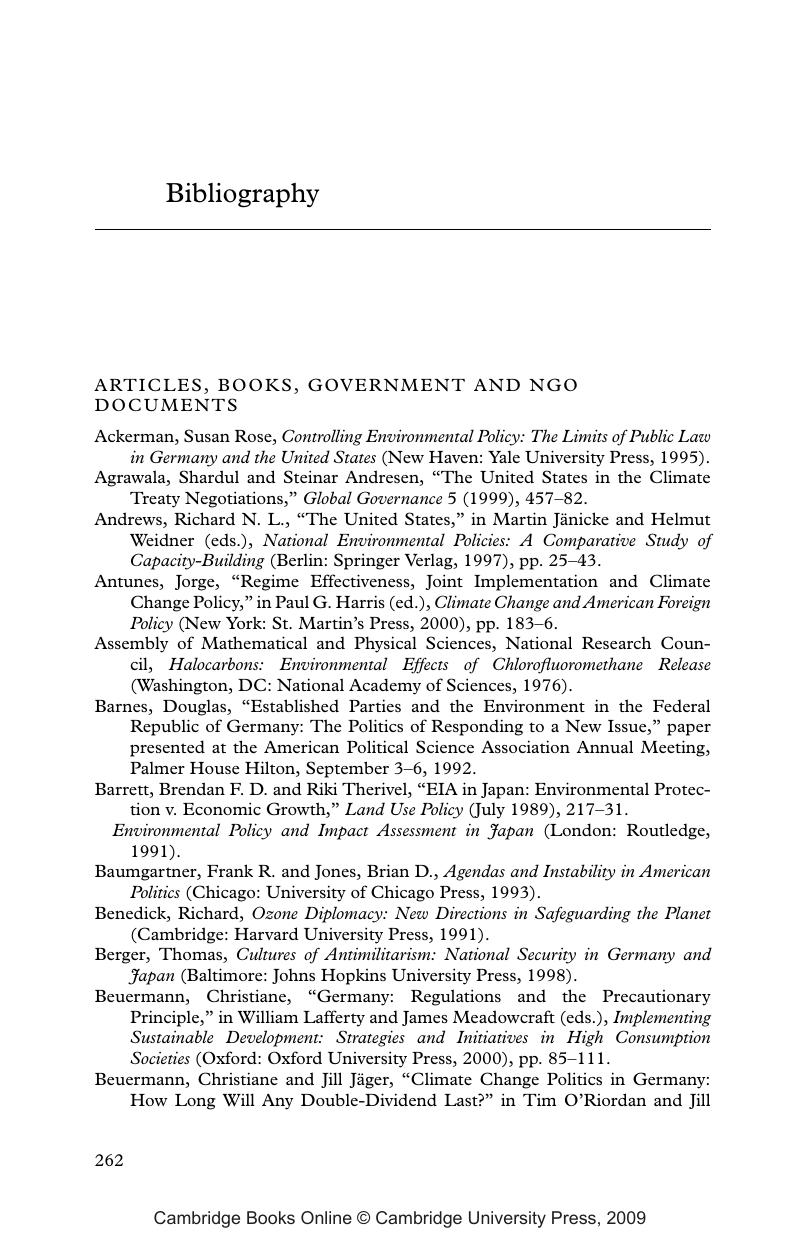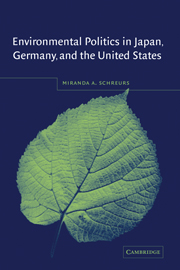Book contents
- Frontmatter
- Contents
- List of figures
- List of tables
- Acknowledgments
- List of abbreviations
- 1 Introduction
- 2 The birth of environmental movements and programs
- 3 The institutionalization of environmental movements
- 4 Acid rain: signs of policy divergence
- 5 Stratospheric ozone depletion
- 6 Global climate change: the road to UNCED
- 7 Global climate change: the battle over Kyoto
- 8 Global environmental politics and environmental policy communities
- 9 Domestic politics and the global environment: Japan, Germany, and the US compared
- Bibliography
- Index
- References
Bibliography
Published online by Cambridge University Press: 22 September 2009
- Frontmatter
- Contents
- List of figures
- List of tables
- Acknowledgments
- List of abbreviations
- 1 Introduction
- 2 The birth of environmental movements and programs
- 3 The institutionalization of environmental movements
- 4 Acid rain: signs of policy divergence
- 5 Stratospheric ozone depletion
- 6 Global climate change: the road to UNCED
- 7 Global climate change: the battle over Kyoto
- 8 Global environmental politics and environmental policy communities
- 9 Domestic politics and the global environment: Japan, Germany, and the US compared
- Bibliography
- Index
- References
Summary

- Type
- Chapter
- Information
- Environmental Politics in Japan, Germany, and the United States , pp. 262 - 282Publisher: Cambridge University PressPrint publication year: 2003

